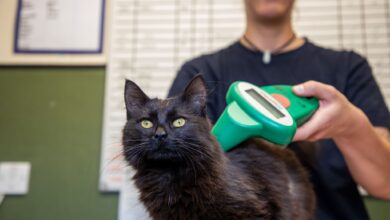Neutering female dogs trebles risk of urinary incontinence

Neutering female dogs makes them three times more likely to develop urinary incontinence (UI), a new study has revealed.
The research, carried out by the Royal Veterinary College’s (RVC) VetCompass programme, also indicated the females of certain breeds were more prone to UI than others. Hungarian Vizslas, Doberman, Weimaraners and Boxers are the breeds most at risk, according to the findings.
Currently, UI affects around 3% of bitches in primary veterinary care in England. A connection between neutering and UI in bitches has long been suspected but this study helped to provide stronger evidence. It is expected that these results will aid owners and vets in making evidence-based decisions when it comes to neutering female dogs.
The study was conducted by analysing data from 333,910 bitches who presented at veterinary practices participating in the VetCompass programme between 2014 and 2017.
The data also showed that age and bodyweight were major contributory factors to bitches developing UI as well as neutering and breed. Other key findings include:
- Bitches over nine years old are 1.7 times more likely to develop UI compared to those younger than three years.
- Bitches weighing over 10kg are 1.9 more likely to develop UI than those weighing less than 10kg, while bitches over 30kg are three times more likely.
Camilla Pegram, VetCompassTM epidemiologist and lead researcher on the study, said: “First opinion vets discuss and perform neuters on a daily basis but, until now, evidence on the link between neutering and urinary incontinence has been tenuous. This study provides stronger evidence of an important association between neutering and urinary incontinence.
“The decision to neuter a bitch is based on many factors, not just incontinence risk alone. However, these results suggest that the component of the decision driven by urinary incontinence could be emphasised for the high-risk breeds and bitches of larger bodyweight.”
RVC’s VetCompass project analyses anonymised veterinary clinical records from over 1,000 UK vet clinics to enhance understanding and improve the health and welfare of all companion animals.
The study, Spaying and urinary incontinence in bitches under UK primary veterinary care: a case-control study, has been published by the Journal of Small Animal Practice.













